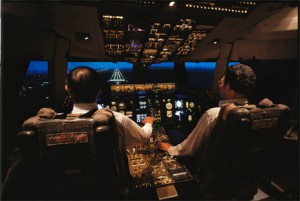
FEATURE
Automated to Death
As software pilots more of our vehicles, humans can pay the ultimate price. Robert N. Charette investigates the causes and consequences of the automation paradox
EXTRACT:
The Flight 124 crew had fallen prey to what psychologist Lisanne Bainbridge in the early 1980s identified as the ironies and paradoxes of automation. The irony, she said, is that the more advanced the automated system, the more crucial the contribution of the human operator becomes to the successful operation of the system. Bainbridge also discusses the paradoxes of automation, the main one being that the more reliable the automation, the less the human operator may be able to contribute to that success. Consequently, operators are increasingly left out of the loop, at least until something unexpected happens. Then the operators need to get involved quickly and flawlessly, says Raja Parasuraman, professor of psychology at George Mason University in Fairfax, Va., who has been studying the issue of increasingly reliable automation and how that affects human performance, and therefore overall system performance.
Phi Beta Iota: This article can be appreciated at multiple levels. At the strategic level, the matter of spending trillions on technology while being unable to speak 183 languages; at the operational level, the matter of spending trillions on war and nothing significant on peace; at the tactical level, the matter of having only one tool–the military with its excessive reliance on technology and on contractors–while eschewing multinational engagement, information sharing, peaceful preventive measures, and so on.
Just a couple of books that come to mind:
Review: Voltaire’s Bastards–The Dictatorship of Reason in the West
Review: Silicon Snake Oil–Second Thoughts on the Information Highway
Review: Integral Consciousness and the Future of Evolution
Review: RealSpace–The Fate of Physical Presence in the Digital Age, On and Off Planet
Review: Intelligence in Nature
Review: The Future of the Internet–And How to Stop It
Review: The Varieties of Scientific Experience–A Personal View of the Search for God



